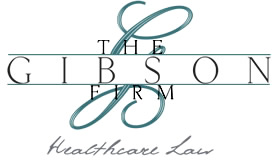The Gibson Firm offers a variety of inservices and educational seminars pertaining to a wide array of medical reimbursement issues at healthcare institutes, full and half day forums, and webinars, as well as private sessions and team training at medical provider business offices.
Our speakers provide real world experience and legal expertise to give you an invaluable educational opportunity. Below is a list of suggested educational topics, although a session can be customized to meet your needs.
To find out more information about our educational services or to schedule your own event, e-mail us at clientservices@thegibsonfirm.com or call us at 770.874.7004 ext. 103.
Emergency Medical Services
Hospitals are required to provide emergency services to individuals who arrive in their emergency rooms for treatment. Federal law, as well as most states’ own individual laws, require insurers to pay for emergency treatment at in-network benefit levels without the need for authorization of services. Learn how to force compliance upon insurance companies with applicable state and federal laws.
What you’ll learn:
- The prudent layperson definition of what constitutes an emergency.
- Proper verification procedures.
- When does the emergency condition “end”.
- Who decides when a patient is stable for discharge.
Denial Defense – Effective Use of Verifications & Pre-authorizations
Know your rights when commercial insurance denies claims after verification of benefits, notification and/or pre-authorization of services occurs. Maximize utilization of these processes to minimize denials and defend your right to proper reimbursement.
What you’ll learn:
- Know how to instruct front end staff on effective verification of benefits procedures.
- Fight claims denials based on “no benefits” when benefits were verified.
- Defend yourself from notification denials when insurance information was unknown at time of service.
- Determine how to effectively appeal denials based on pre-authorizations when pre-authorization was not required (i.e. emergency services or NPR).
Medical Liens
Most states have medical liens that can be filed on behalf of the hospital or other medical providers against the settlement of a personal injury claim- auto accidents, slip and falls, etc.
What you’ll learn:
- How to identify a third party liability situation.
- Know if your state or specialty has medical lien rights.
- Determine when to file commercial insurance versus liability insurance.
- Learn coordination of benefits rules pertaining to Medicare and Medicaid.
- Gain knowledge of basic medical lien law for your state.
- Avoid refund demands from medical insurers years later when liability insurance was involved but not pursued.
ESRD-Specific Issues
Medical providers specializing in maintenance dialysis services for patients with End Stage Renal Disease face unique challenges in the healthcare reimbursement arena. As a leader in ESRD-related reimbursement law, The Gibson Firm is well-equipped to provide education to your staff to assist them in maximizing reimbursement from commercial insurers during patients’ 30-month COB period.
What you’ll learn:
- Learn how to properly document verification of benefits information and effectively use the information to prevent common denials.
- Fight claims denials based on “no benefits” when benefits were verified.
- Determine how to effectively appeal denials based on no pre-authorization when pre-authorization was not required (NPR).
- Learn how to increase out-of-network revenue when faced with Medicare-based reimbursement methodologies
Proper Payments and Interest
Commercial Insurance and Group Health Plans are subject to state and/or federal laws, including ERISA, the ACA, and contract laws, as applicable, and ultimately must pay according to their own written plan or policy terms. Among many things, this session will teach you to identify underpayments, when interest may be due, and to determine if a payor is allowed to use a network for a discount.
What you’ll learn:
- Determine proper payment amounts, i.e. contract rate vs. UCR.
- How to combat low UCR payments.
- Identify allowable network access and avoid silent PPO situations.
- Determine if interest is due and at what rate.
Provider Rights Under ERISA
This session addresses effectively appealing ERISA plan reimbursement denials to capture lost revenue by forcing ERISA plans to follow plan language and federal law. Know your rights as the assignee of your patients’ benefits or how to act as their personal representative for purposes of proper reimbursement.
What you’ll learn:
- Fight reimbursement denials by ERISA plans.
- Understand when ERISA laws are applicable to certain situations and when they are not.
Refund Demands
Vast revenue is lost due to commercial insurers failing to adhere to state and federal laws when “correcting” their own errors by demanding refunds from providers. Learn how to effectively fight back and keep your money!
What you’ll learn:
- Establish when a refund is legitimate and warranted.
- Determine when a refund demand is erroneous, when monies should NOT be returned (almost always).
- Learn how to effectively dispute refund demands.
- How to avoid recoupments/offsets.
- What to do if an offset occurs.


